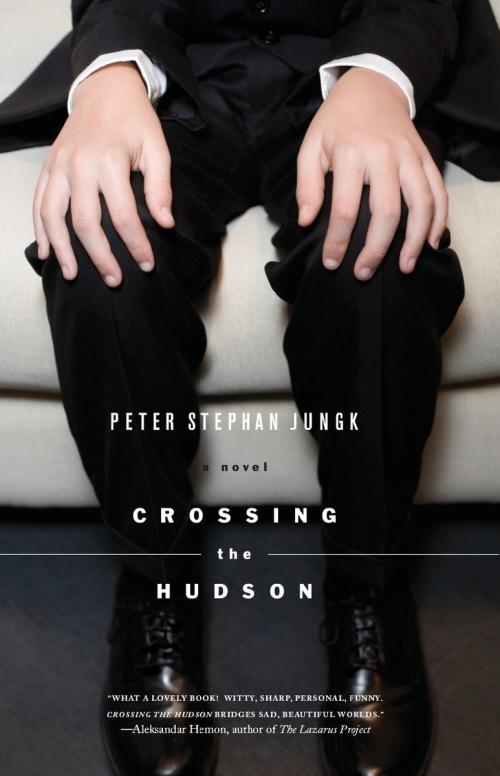1. Ludwig Rubin says that he, his wife, and their son Gustav are “Siamese triplets, attached at the head and the genitals. And behind us, the dead.” (Page 98) Ludwig says they are different from others because they have no other family and both he and his wife feel embarrassed and ashamed to be alive, after much of their family died during World War II. Do you believe this justifies the smothering nature of their relationship?
2. Water repeats in Crossing the Hudson – the family baths, the beloved game played by father and son of throwing something in a stream and watching its journey. How does the bizarre fatherbody floating in the Hudson fit into this motif? Does it make psychological sense?
3. Gustav’s mother seems to take a sadistic satisfaction in putting down her son in every way, pretending not to recognize him as her son once when he was a child and giggling as she lists what she sees as his unattractive physical qualities. Do you think Gustav’s intense attachment to such a mother is masochistic? Do you think they love each other? What is the nature of their love?
4. The theme of the bridge goes throughout Crossing the Hudson, from the grandfather’s fear of crossing bridges, to Gustav’s love of bridges and his role as a bridge between his parents, the improvised lecture on the history of the bridges, the pilot’s feelings about the Tappan Zee. What are the varied meanings of the bridge in Crossing the Hudson?
5. Jewish guilt has famously been seen in a positive way as a strong sense of responsibility for others and the world and in a negative, if humorous way, as neurotic self-absorption. How do you think guilt of this kind and others plays out in the Rubin family?
6. How do you perceive Gustav’s choice to become an orthodox Jew? What might have been his motivations?
7. How do the eccentric characters they meet on the bridge provide comic relief, and serve as a counterpoint to Gustav’s mother?
8. How do Ludwig and his wife’s descriptions of their marriage differ? Gustav’s mother insists that no one had a marriage like theirs, certainly not Gustav and his wife. Do you think Gustav had a chance to have a successful marriage? Do you think he played a role in keeping his parents together?
9. Ludwig is horrified at his son’s choice of commerce over academic life, and lists what he considers to be the terrible professional choices of the children of numerous famous intellectual European émigrés. Ludwig states, “No one knows about this, but Jean Amery’s illegitimate daughter became a pedicurist. No wonder he committed suicide.” (Page 36) What do you think about the abyss in values between these generations?
10. Gustav says, “Whoever hasn’t slugged it out with his father, whoever has failed to defend himself will feel weak, incomplete, unmanly the rest of his life.” (Page 140) Do you think a son must rebel against his father to become a man?
11. Why is the airline pilot so extremely captivating to both Gustav and his usually very critical mother? How do she and her mother contrast to the two of them?
12. Do you think Gustav will be able to leave his father (and his mother) psychologically and save his life? How does the last image of his breaking away from his father strike you? What do you make of the last line of the book?
13. Do you find Crossing the Hudson comic? Which aspects of it were particularly amusing? What other tones make up the novel?

